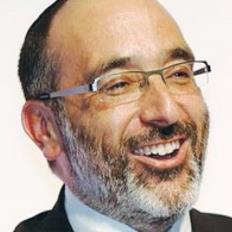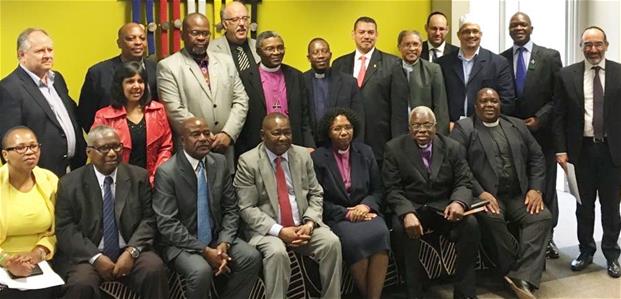
News

Chief’s varsity fee input sits well with Blade
ANT KATZ
Rabbi Goldstein was one of 10 delegates of the National Religious Leaders Council (NRLC) who was invited to discuss the matter with Nzimande and some of his most senior officials.
The Minister presented the problem as well as a solution he is working on – but stressed that he wanted honest feedback from the group of faith leaders.
Nzimande’s current thinking is that fees would increase as normal, the Chief Rabbi told the Jewish Report, but that the increases would only apply to those who could afford it. Those who can’t would continue to pay the same fees as they did in 2015. The education institutions would get the fees they require as the subsidised students’ shortfalls would be funded by the State.
The reason for his plan, Nzimande told the meeting, was to ensure that the wealthy are not getting subsidies which they don’t need.
Seated opposite Nzimande at the table, the Chief Rabbi proposed a concept of “soft loans for students” which, he later told Jewish Report, means that “those who do well financially after studying will repay their loans” and could become part of what can eventually become a self-sustaining system.

ABOVE: Chief Rabbi Warren Goldstein and Rabbi Gideon Pogrund with leaders of other faiths and the Ministry for Higher Education
Rabbi Goldstein said the Minister really liked the idea and asked his deputy to make note of it.
Another of Rabbi Goldstein’s suggestions is already being actioned. The Chief Rabbi wrote a Bill of Responsibilities in 2009 (co-drafted with then-Minister of Education Naledi Pandor) which is now part of the primary school curriculum in South Africa and suggested its distribution should be expanded to higher education institutions, workplaces and the like.
The deputy director general in Nzimande’s ministry, Dr Dianne Parker, was tasked to work with Rabbi Goldstein to take the idea forward – and they are already in touch.
Nzimande said there is a gap the religious leaders could assist him with; there had been very little input into the debate from parents, resulting in a situation where educators, government and students are left to work out the answers without guidance from parents. He asked the faith leaders to please pass the message down the line so that community clergy could raise it with their individual congregations.
Towards the end of the meeting, the Chief Rabbi pleaded with the Minister to express the grave concerns of the country’s religious leaders to the President and his government “regarding the actions being taken against Minister Pravin Gordhan.” Dr Nzimande promised that he would convey the message.





Choni
September 12, 2016 at 8:15 am
‘Wouldn’t it be nice if the Chief Rabbi could tell Blade not to hate Israel?’
nat cheiman
September 13, 2016 at 1:57 pm
‘Blade doesn’t know where Israel is.’
Malki
September 14, 2016 at 8:30 am
‘Wouldn’t it be nice if the Chief Rabbi could deal with issues affecting his own community directly.’
Choni
September 14, 2016 at 8:47 am
‘Nat, He knows alright, They recently refused him entry because of his anti- Israel remarks.’
nat cheiman
September 15, 2016 at 6:04 am
‘OH!!! I forgot Choni, you are quite correct.
I thought he was just stupid . I never realised he was ant-Semitic’
Russell Fig
September 22, 2016 at 5:12 pm
‘It is unfortunate that some South African blacks are anti semetic considering the role that Jews played in the anti Apartheid movement. What is it going to take to teach them gratitude? Are they so unaware of the Jews who were in the ANC and other Jews who continualy fought against Apartheid? How unfortunate that there are ignorant people who know praticly nothing about their own history.’
C D Goldberg
October 6, 2016 at 12:09 pm
‘Every person has the fundamental human right towards an education and entry into a university and any other tertiary institution in South Africa must be solely on merit and nothing else.
If the route is to provide free education, then strict no-nonsense conditions must be set with consequences if students are in breech of these conditions. Also poor academic performance, provided it is absolutely no fault of the university or institution, must lead to the expulsion of the student concerned.
Furthermore the standards of school education have to be raised with immediate effect. ‘